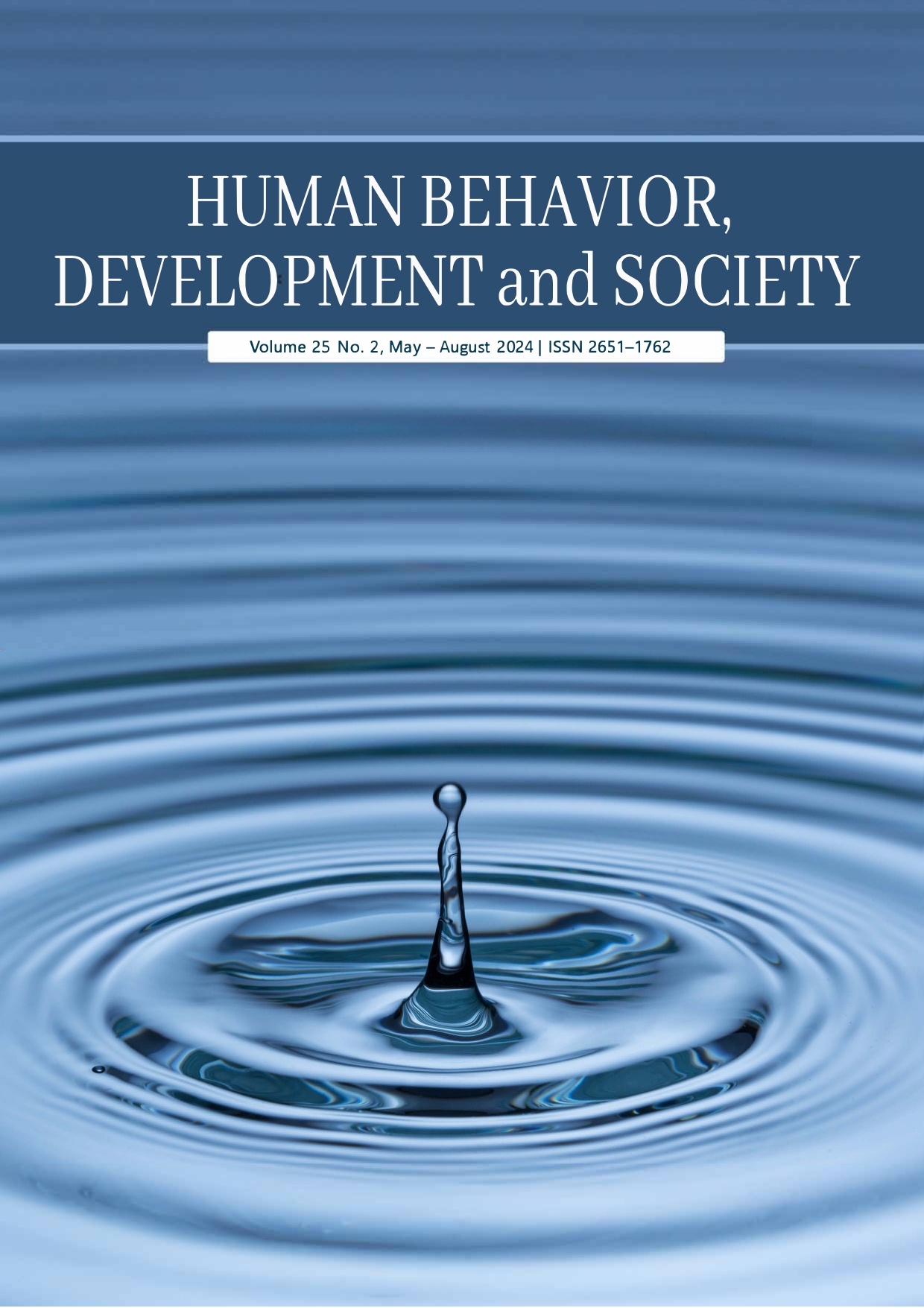From “Suem Sao” to “Rok Suem Sao” and After: An Ethnography of the Diagnosis and Treatment of University Students Diagnosed with Major Depressive Disorder
Main Article Content
Abstract
This ethnographic study explored the subjectification and psychiatrization journeys of Bangkok youths who went from realizing they were suffering from Suem Sao (Depression) to being diagnosed with Rok Suem Sao (Major Depressive Disorder). Through ethnographic interviews, the research examined how cultural perceptions and societal stigma influenced the acceptance and internalization of their depression diagnosis and its social and personal consequences. Focusing on seven young adults, a complex interplay between culture and medical diagnosis was revealed. Firstly, pre-psychiatrization, participants generally accepted their psychiatric labels, often due to the perceived authority and credibility of professionals. Secondly, during psychiatrization, some participants felt dissatisfied with the treatment as doctors strongly relied on prescriptions and lacked communication skills, particularly incorporating inappropriate scenarios of Dhamma into the treatment or unintentionally gaslighting conversation. Thirdly, post-psychiatrization, this study documented the pervasive stigma associated with depression, which significantly impacts an individual’s willingness to seek help, tell others, and their subsequent treatment experiences, such as discrimination, feelings of hiding, and burden from having depression, particularly in academic environments. Participants reported a range of responses to their diagnoses, from relief at having their feelings validated by doctors to continued struggles with accepting their condition amidst ongoing stigmatizations.
Article Details

This work is licensed under a Creative Commons Attribution-NonCommercial-NoDerivatives 4.0 International License.
Copyright: Asia-Pacific International University reserve exclusive rights to publish, reproduce and distribute the manuscript and all contents therein.
References
Beeker, T., Mills, C., Bhugra, D., Te Meerman, S., Thoma, S., Heinze, M., & von Peter, S. (2021). Psychiatrization of society: A conceptual framework and call for transdisciplinary research. Front Psychiatry, 12, 645556. https://doi.org/10.3389/fpsyt.2021.645556
Dessauvagie, A. S., Dang, H.-M., Nguyen, T. A. T., & Groen, G. (2021). Mental health of university students in Southeastern Asia: A systematic review. Asia Pacific Journal of Public Health, 34(2-3), 172–181. https://doi.org/10.1177/10105395211055545
Dreyfus, H. L. (1987). Foucault's critique of psychiatric medicine. The Journal of Medicine and Philosophy: A Forum for Bioethics and Philosophy of Medicine, 12(4), 311–333. https://doi.org/10.1093/jmp/12.4.311
Foucault, M. (1998). Foucault. In J. D. Faubion (Ed.), Aesthetics, method, and epistemology: Essential works of Foucault 1958–1984 (Vol. 2) (R. Hurley, Trans.). The New Press.
Foucault, M. (1982). The subject and power. Critical Inquiry, 8(4), 777–795. http://www.jstor.org/stable/ 1343197
Hacking, I. (2004). Between Michel Foucault and Erving Goffman: Between discourse in the abstract and face-to-face interaction. Economy and Society, 33(3), 277–302. https://doi.org/10.1080/0308514042000225671
Hfocus. (2023, March 27). Phāwa sangkhom Thai sō̜ngphanhārō̜ihoksiphā pūai sưmsao phung sūng nǣonōm wairun - wai tham ngān khā tūa tāi phœ̄m khưn [Thai social conditions in 2022: Depression is on the rise; suicide rates among teenagers and working-age people are increasing]. https://www.hfocus.org/content/2023/03/27358
Horwitz, A. V., & Wakefield, J. C. (2023). Two sides of depression: Medical & social. Daedalus, 152(4), 212–227. https://doi.org/10.1162/daed_a_02039
Kaewpila, W., Thaipisuttikul, P., Awirutworakul, T., Jumroonrojana, K., Pitidhammabhorn, U., & Stevens, F. (2020). Depressive disorders in Thai medical students: An exploratory study of institutional, cultural, and individual factors. International Journal of Medical Education, 11, 252–260. https://doi.org/10.5116/ijme.5fbe.4ce5
Kleinman, A., & Good, B.J. (Eds.) (1985). Culture and depression: Studies in the anthropology and cross-cultural psychiatry of affect and disorder. University of California Press. https://doi.org/10.2307/jj.2711593
Lindholm, S. K., & Wickström, A. (2020). ‘Looping effects’ related to young people’s mental health: How young people transform the meaning of psychiatric concepts. Global Studies of Childhood, 10(1), 26–38. https://doi.org/10.1177/2043610619890058
Martin, D., & Atkinson, C. (2020). University students’ accounts of living with depression. Research in Post-Compulsory Education, 25(2), 127–148. https://doi.org/10.1080/13596748.2020.1742976
Martínez-Hernáez, A., DiGiacomo, S. M., Carceller-Maicas, N., Correa-Urquiza, M., & Martorell-Poveda, M. A. (2014). Non-professional-help-seeking among young people with depression: A qualitative study. BMC Psychiatry, 14(1), 124. https://doi.org/10.1186/1471-244X-14-124
Rose, N. (2006). Disorders without borders? The expanding scope of psychiatric practice. BioSocieties, 1(4), 465–484. https://doi.org/10.1017/s1745855206004078
Rose, N. (2007). The politics of life itself biomedicine, power, and subjectivity in the twenty-first century. Princeton University Press. http://www.jstor.org/stable/j.ctt7rqmf
Whooley, O. (2017). The DSM and the spectre of ignorance: Psychiatric classification as a tool of professional power. In B. Cohen (Ed.), Routledge international handbook of critical mental health (pp. 179–185). Routledge.


